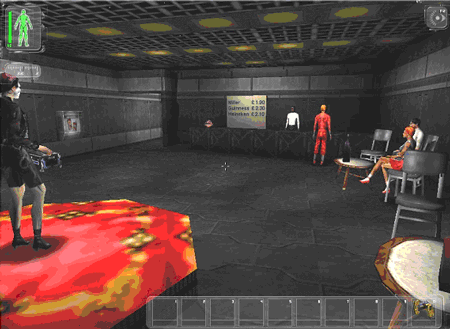|
|||
Exploring the Video Game as a Learning Toolby Francis Emmerson Computer and video games are as relevant a cultural medium as books, film and television for many of today's young people. As such, they have the potential to be used as a highly effective means of delivering a wide range of educational and training material. For those who have not been successful in a traditional educational setting, games can provide both an attractor to return to learning and a new environment in which the learner can feel comfortable and empowered. Often, time and cost are a barrier to experimenting with video game-learning, an area where it can be difficult to explore the potential benefits without actually creating a purpose-built game to test hypotheses. The customisation of existing commercial games through the use of freely available development tools (a process known as modding) can provide an excellent means of creating applications that can assist the study of video games as a means of delivering learning material, without requiring the time and money that is needed to create a game from scratch. Modding is efficient for a number of reasons:
Research into games and learning at IC CAVE at the University of Abtertay has explored a number of areas, including:
Our initial developments have centred on creating levels using the PC game Deus Ex (published by Eidos). In all these instances, it has been our approach to tackle these topics in a meaningful way that aims to keep the game fun whilst maintaining the integrity of the learning material. Technically at least, mod creation is an activity that is accessible to many; the development tools that are used are often more akin to high level productivity applications than programming environments. Ultimately the success of the mod as a learning application will be down to the creator's skill in understanding both the nature and appeal of video games and how best to integrate learning content so that it is delivered as effectively (and seamlessly) as possible.
In order to really understand the possibilities of video games as a learning tool, we must start creating our own games that properly address the topics that we wish to communicate with the learner. Yes, it is possible to integrate existing games, as they are, into a curriculum in order to understand some aspects of the appeal of games in a learning context. However, in doing so, we are not fully exploring the possibilities of the game itself as a learning tool. Unless we begin to start making our own games that actually incorporate our specific learning material we will not be able to develop the techniques required to allow us to integrate learning content into the game itself. It is also clear that the time and money required to develop a commercial quality video game is prohibitive to most organisations, and so, we find ourselves in a position whereby our ability to gather meaningful data can be hindered by our inability to create meaningful applications. Modding provides the opportunity to start to explore the possibilities of video games as a learning tool in time and cost effective way. Please contact: |
|||



